- Home
- Helen Dunmore
Birdcage Walk Page 5
Birdcage Walk Read online
Page 5
‘Are you cold, Lizzie?’
‘Not at all.’
He took my mittened hands and rubbed them between his. ‘You are cold,’ he said, ‘let’s go in.’
The door to the house was open wide, and I could hear hammering.
‘They are finishing the banisters on the attic staircase,’ said Diner. He knew everything that happened in the house, just as if it were happening inside his own body. The plastering was almost done now, he’d told me.
We stepped into the hall. The floor was still raw, untiled, although everything was ordered and would be laid next week.
‘Look up,’ said Diner. I stared at the ceiling rose, where the chandelier would hang. Our names were woven into it in plaster: ELDIN. The script flowed as clear as Mammie’s handwriting but it was so artfully done that you would think, at a first glance, that the letters were merely part of the decoration. ‘Every time you enter the house, you will know that it is ours and that we are together here under our own roof.’
‘Yes.’ It seemed more final than a marriage, for this house would be standing long after we were dead and buried. Tears stung my eyes. I felt so alive that it was impossible to imagine we would ever be shut away in the cold ground.
‘Lizzie!’ said Diner. ‘My Lizzie.’
‘Yes.’
‘I will have our names put into the tiling of this floor, too, but secretly so that no one else will be able to read them.’
‘How?’
‘They will be hidden within words that I have chosen.’
‘What will they mean, those words?’
‘I will tell you – after the tiling is finished.’
Yet the lightness of the morning had gone. The house smelled of damp plaster. Overhead, hammering and whistling continued as if others were more at home here than I was.
‘It will be beautiful,’ I said, but it wasn’t enough. He was still waiting for some rapture that I couldn’t provide. ‘It is beautiful,’ I said, moving into the room that he said would be our drawing room. I had never had such a room before but I could perceive its elegance, even in its present nakedness. The fireplace was in, the plasterwork complete. The windows were glazed but the shutters not yet installed. Diner had told me that the elegance was in the proportions, as a woman’s beauty lies in her bones.
‘Walk to the windows, Lizzie.’
I went to the window and looked out as I thought he intended me to do, but he said impatiently, ‘Did you not notice?’
‘Notice what?’
‘The silence. There was not a squeak from the boards as you crossed them. This may be the smallest house in the terrace, but it is the best made of all.’
‘It is very fine,’ I said, and then remembered that those were Mammie’s words. I hoped I had not also caught her tone. I went to Diner and put my arms around him. ‘It is magnificent.’
He held me back and scrutinised my face. ‘Can you see how it will be?’
‘Yes,’ I said, but I knew that whatever his vision was, I could not share it. ‘We’ll have the fire lit, Diner, and you will come in and sit just there’ – I pointed to a spot on the floor – ‘and you will warm yourself, and then—’
‘Yes,’ he said eagerly. ‘There will be no one else. Only ourselves, and the shutters closed.’ He walked around the room, frowning. ‘I thought we would wait, Lizzie, until everything was complete and the house furnished. But now I find that I cannot wait.’
He was telling me that there would be no money for the fine papers, furnishings and silk curtains he had described to me before the building began. Perhaps he was telling me that he could no longer afford the rent of the house where we were lodging. How could I let him know that I understood this, without hurting his pride? It was nothing strange to me if money was short. We hadn’t always had four rooms to lodge in, when I was a child. In one house I remembered Hannah sleeping on a truckle bed beside the big bed where I cuddled with Mammie. When Augustus came into our lives he brought very little money and, worse than that, he had a saving disposition. Diner had promised that he would take me away from all those shifts; and I had been glad. I am ashamed now when I think how lightly I stepped away from the smell of Hannah’s everlasting stew-pot.
He had stopped by the window and was looking out. There hung the splendour of the Gorge. That was what he wanted to give to me. I wanted to go to him but knew that I must not. If he thought that I pitied him, he would quickly come to hate me.
‘I don’t want to wait either,’ I said, light and eager. ‘Where is the sense in it? I want us to be here. We can bring what we need, and do everything as we choose, in time, when you are less busy.’ He had furniture, I knew, put away in storage, although I had never seen it. A bed, some chairs and a table, a chest or two … Surely there would be that much? I had bought linen and household equipment with the hundred pounds my grandfather left to me in his will, to be given to me on my marriage. Diner allowed me to spend it as I chose. There were sixty pounds left. I calculated quickly. We needed beds and chests for Sarah’s and Philo’s rooms in the attic. Those would not cost much.
Diner smiled and stretched out his hand to me, drawing me to the view. ‘You shall be here very soon, Lizzie,’ he told me, as if soothing the impatience of a child. I stared at the brightness of the day, and thought of my sixty pounds. I had meant to give twenty pounds to Mammie, or rather to Hannah, who would slip it away under her shawl, say nothing and use it as needed. But if Diner asked for the money I must give it to him, since it belonged to him now and not to me.
When I went to visit Mammie later that day it was Augustus who opened the door, holding it wide with a flourish that did not suit him. His big, bony forehead shone.
‘My dear Elizabeth!’ he exclaimed. ‘You are in luck. Richard Sacks has just this moment arrived.’
‘How is my mother?’
‘Well. She is well.’ He climbed the stairs ahead of me, and I thought again how his long legs, cased in black, were as ungainly as a schoolboy’s. He knocked into things. At the turn of the stairs he stopped dead, almost causing me to bump into him. ‘We are drinking tea together,’ he said, turning to me and beaming as if this were something rare. ‘Caroline Farquhar has sent down from London a pound of the finest tea.’
Caroline Farquhar was not my favourite among Augustus’s well-wishers. She seemed to like my mother very much, and certainly she read everything that my mother wrote. But it was to Augustus that her eyes turned. I could never make it out. Caroline Farquhar was rich, widowed and far from ugly. She had no children. She might do anything she chose, but when Augustus gave one of his speeches, her lips moved too.
I had given Hannah a pound of tea only the week before. We never bought the finest quality because it cost three times as much.
‘I have been drinking tea with my mother every day this week,’ I said.
But Augustus, for all his lack of income, prided himself on his taste and discernment. ‘Certainly that is true,’ he said gravely. ‘But I think you will agree, when you taste the nectar in our cups today, that we have never before drunk tea.’ He lifted one hand, as he did when explaining a point of philosophy. ‘And very likely this is not only true of our subjective judgments. It may be that there is a platonic ideal of tea in comparison with which all our previous experience must be considered merely as a shadow – a foreshadowing—’
‘Hold on to the rail,’ I said sharply, for he had wobbled in his discourse and I thought he might fall on top of me.
The little parlour seemed crammed. Augustus’s legs were stretched out before him, while Richard Sacks, who was a heavy man, sat square and rocked back and forth as he spoke, until the joints of the chair creaked. Hannah, very upright, knitted and listened. Mammie sat back from the fire, her hands idle. I drew my chair close to hers, took her hand in mine and chafed it.
‘You’re cold, Mammie. Come closer to the fire,’ I whispered, but she shook her head. She was far away, as she knew how to be. She had absented herself even fro
m me. I wondered if she did the same when she lay in bed with Augustus, because I could not think of any other solution to the mystery of how she bore with him. And especially now that I was not a girl any longer and knew what marriage meant. My mother might have lived in peace with me and Hannah, and yet she had chosen Augustus.
‘I’m not cold, Lizzie.’
Hannah raised her head and looked over at us attentively, as if she were trying to make out what we were saying. I saw my mother shake her head minutely in response. She and Hannah had had almost a language of gestures and silences between them when I was a child, to pass those messages which were not for me. I had never challenged them. I liked the feeling that Mammie and Hannah were there to manage things, and I was safe with my book or my doll. But not now.
‘What is it?’ I whispered. ‘What does Hannah mean?’
‘Nothing, Lizzie. Hush.’
Hannah had dropped her eyes, but now Augustus was looking over at my mother. ‘Julia,’ he said fondly, ‘do not tire yourself. You have been sitting with us an hour or more. Do you not think, Hannah, that she should rest?’
‘She will please herself, I dare say, as you have done,’ snapped Hannah. Richard Sacks coughed and rubbed his hands along his broad thighs. He knew. Hannah and Augustus knew. All of them were skirting something which was invisible only to me.
‘Mammie,’ I said aloud, ‘let me take you to your room,’ and I put my hand under her elbow, almost forcing her to rise. She gave way to me and we went out of the room without speaking to anyone.
I shut the door. It was chilly in the bedroom, with the fire down to a few red coals. Now we were standing face-to-face, I saw how pale she still was, blotched under the eyes. Her breath was sour. All at once it came to me, as if the truth had travelled from her body into mine.
‘Mammie,’ I said, ‘you are never going to have another child.’
She looked at me steadily, and nodded. There was no smile on her face or mine.
‘How could you?’
‘It happened, Lizzie.’
‘What about the sponge? What about those extraordinary methods of self-control you described to me? Could Augustus not practise them?’ I almost said: As Diner does.
There was silence between us, until I broke it.
‘But, Mammie, you are almost forty. How can you have a child?’ Safely, I meant, but did not dare to say it in case those words, once spoken, might begin to work on her.
‘Lizzie,’ she said, ‘Lizzie, Lizzie, Lizzie.’
‘Hannah knows,’ I said, ‘Augustus knows. Even Richard Sacks knows. No doubt Augustus has already communicated the intelligence to Caroline Farquhar and that is why she sent the tea. Only I was to remain in ignorance, it seems.’
‘Augustus had no business to speak to Richard about this matter.’
‘But he did. He blabs. He is like a child, and you all indulge him.’
None of this was what I wanted to say to her. We stood apart, and then I saw her shiver.
‘You aren’t well, Mammie. Lie down while I make up the fire.’
I wrapped the clothes about her and went to kneel by the fire and coax it up with fresh small pieces of coal and the bellows. Soon the flames grew and I laid more coal before returning to the bed.
‘You must keep warm,’ I said to her. ‘Mammie, were you ill like this before I was born?’
‘I don’t think so. I can’t remember. It was such a long time ago, Lizzie. Now don’t look like that; it is not the end of the world. Hannah will look after the baby, as she did with you.’
The baby. It was the first time I’d thought of there being a baby. All I had seen at first was the risk to Mammie. I knew nothing of babies, although of course I saw them often enough, red-faced and squirming inside other women’s shawls.
‘And you’ll keep on writing,’ I said, ‘as you did with me.’
‘I was not eighteen when you were born, Lizzie. I had scarcely begun to think, let alone write.’
And three years later, my father had died. His parents had not wanted him to marry Mammie, and they liked her even less after my father died and she began to write. Once, when she spoke of them, I suddenly realised: those people she is talking about are my grandparents. Since they had never visited me or sent me a letter, the thought seemed unreal, but I had to admit that the hundred pounds my grandfather had left to me was solid enough.
There was one portrait of my father, a miniature which my mother kept in a small ivory box, and gave to me when she married Augustus. He looked very young, and, as even Hannah allowed, very handsome.
‘Hannah will look after everything,’ I said.
‘I suppose so,’ said Mammie wearily. ‘She is angry with me.’
‘Why?’
She sketched her own body with her hands. ‘The baby. She says it will hinder my work.’
‘She should be angry with Augustus.’
‘Yes, she is that too.’
‘But you said Hannah will take care of the baby.’
‘Perhaps it is too great a burden to load on to her now. She is not a young woman, as she was when you were born.’
And you are not young either, I thought. ‘I can help you,’ I said.
She laughed. I was lying on the pillow beside hers, where I supposed Augustus sometimes lay. She turned and rubbed the back of her hand along my cheek. ‘Of course you will not, my darling.’
She was right. I had offered because I knew nothing of what a baby meant. Hannah and Mammie had cherished me but they had also made me strong. They did not let me understand that I had any limitation. They had brought me up to believe that in mind and spirit I was the equal of any creature on earth. I could read and cook and sew and pack our belongings into boxes for the carter to take us from lodging to lodging, and I could walk as far and fast as any boy.
‘Why should it hinder your work, Mammie? Between Hannah and you and me, there are three pairs of hands. Surely no baby can require more than one at a time. Or you can put it to a wet-nurse,’ I added, although I knew she did not believe in wet-nurses.
‘Don’t think about it any more, Lizzie. I’ll keep on writing, Augustus will continue to travel the length and breadth of Britain, and Richard Sacks will sit and drink tea with us.’
‘But probably not tea of the quality we had today.’
Mammie laughed. ‘Oh Lizzie, you do me good. I’m tired, that’s all it is. My head is in a fog, and I cannot think straight.’
I thought of Augustus and Richard Sacks in the parlour, conversing as eagerly as ever. They would talk on all day and half the night, drinking up Caroline Farquhar’s tea while my mother lay here too sick and tired to think. I looked over at the fire and saw that the coal-bucket was almost empty. I picked it up, and the brass tongs, and marched into the parlour. Hannah was no longer there: she must have gone into the kitchen. Yes, as I thought, the parlour coal-bucket was full. Augustus must have got up and filled it. I knelt down and began to transfer the coal from the parlour bucket to my mother’s, piece by piece, choosing the largest and finest lumps. The talk between Augustus and Richard Sacks died away.
‘What are you doing, Elizabeth? We shall have no fire.’
‘Then you must go walking with Mr Sacks. The exercise will heat you, and do you good.’
They made no reply but I could sense them glancing at each other over my head. I had transferred all the coal that was worth having now, leaving only a little slack in the bottom of the bucket. I got up, and faced Augustus.
‘You might eat your dinner in a tavern tonight, to save Hannah work. She has a great deal to do, while my mother is ill.’
‘Has Julia spoken to you of our expectations?’ Augustus asked me. I thought how silly his face was, like a sheep’s. His mouth was forever opening and closing, like a sheep’s in pasture. His white bony forehead gleamed like the sheep’s skull I had found in the summer, when I was wandering on the Downs.
‘Indeed she has,’ I said briskly. I was not going to let him guess at my f
ear, or my anger. It was done now. Mammie, not I, was going to have a child.
5
It was some weeks after we moved into the new house that the floor was tiled. As he had promised, Diner had words tiled into it, but so subtly that I could only read them because he told me where they could be found. They read: ‘Out of the strong came forth sweetness.’ I was taken aback, because I’d thought from what he had said earlier that he was going to place our names there, hidden within the design of the floor. But he told me that he had changed his mind and instead had placed there part of a riddle first asked by Samson in the Bible.
The Bible is a book I know less well than many others. I could not imagine that a riddle out of the Bible would have much to do with our marriage.
‘You must know who Samson is, Lizzie,’ said Diner.
I remembered that Delilah had cut off his hair while he slept, which sapped his strength so that he could be captured.
‘Samson was on his way to marry a Philistine woman when he killed a lion with his bare hands. He returned later to the carcass, only to find that a swarm of bees had made its home there. He took out the honey and made a riddle: “Out of the eater came forth meat, and out of the strong came forth sweetness.”’
‘Well, I suppose that riddle might be hard to guess,’ I said. ‘Who would think of a man killing a lion with his bare hands? Let alone digging honey out of the lion’s belly, when it ought to have been swarming with flies and maggots. If it were not in the Bible, it would be hard to credit.’
‘You speak very freely, Lizzie.’
‘It is what I was brought up to do. I can sew you a fine shirt, but I cannot embroider a text for you.’
‘Is that another riddle?’
‘You know it is not.’ If he wanted a quarrel, I was ready for it. It seemed to me that Diner was talking to me as if I were a child. You speak very freely. It made me indignant, as if he had laid hands on me. I think he saw it, because next time he spoke his voice had changed.
‘You are right, Lizzie, it should have been impossible for them to guess the answer to the riddle. Samson made the solving of it into a bet with the Philistines, and none succeeded. But then for seven nights the Philistine woman whom he had married wept and told him he did not love her because he would not confide in her the answer to the riddle. She persisted until on the last night she coaxed the secret of the riddle out of Samson and then she told it to her people. Consequently, Samson did not win his bet.’

 The Ingo Chronicles: Stormswept
The Ingo Chronicles: Stormswept The Deep
The Deep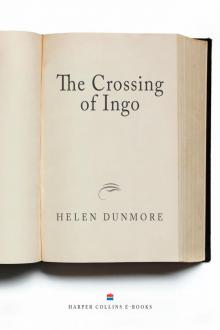 The Crossing of Ingo
The Crossing of Ingo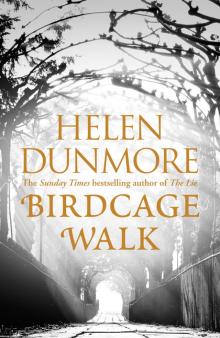 Birdcage Walk
Birdcage Walk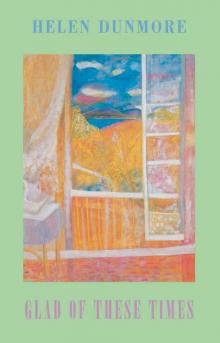 Glad of These Times
Glad of These Times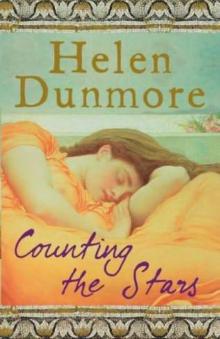 Counting the Stars
Counting the Stars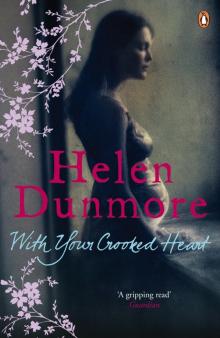 With Your Crooked Heart
With Your Crooked Heart Burning Bright
Burning Bright House of Orphans
House of Orphans Mourning Ruby
Mourning Ruby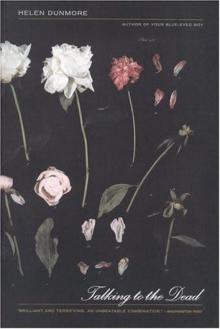 Talking to the Dead
Talking to the Dead Exposure
Exposure Ingo
Ingo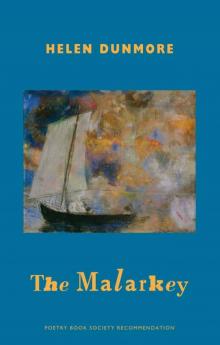 The Malarkey
The Malarkey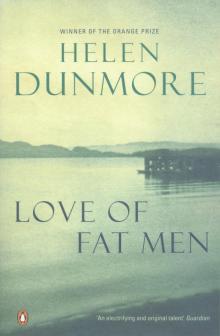 Love of Fat Men
Love of Fat Men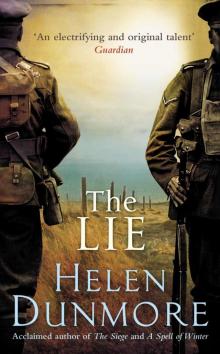 The Lie
The Lie The Siege
The Siege Inside the Wave
Inside the Wave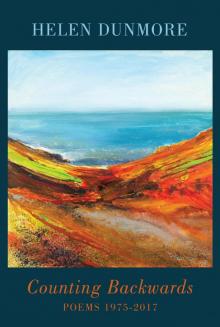 Counting Backwards
Counting Backwards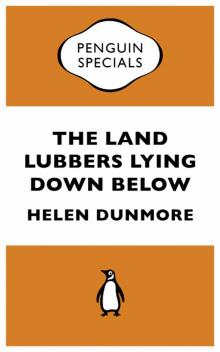 The Land Lubbers Lying Down Below (Penguin Specials)
The Land Lubbers Lying Down Below (Penguin Specials)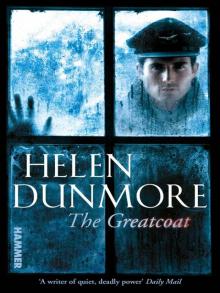 The Greatcoat
The Greatcoat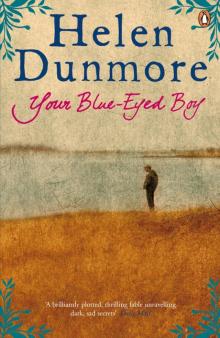 Your Blue Eyed Boy
Your Blue Eyed Boy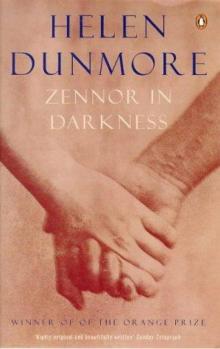 Zennor in Darkness
Zennor in Darkness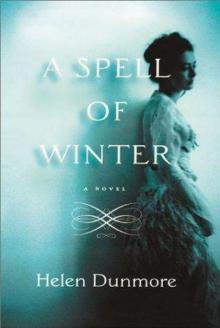 Spell of Winter
Spell of Winter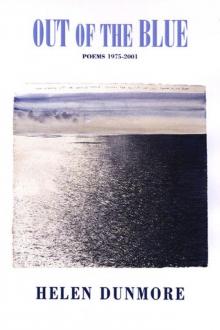 Out of the Blue: Poems 1975-2001
Out of the Blue: Poems 1975-2001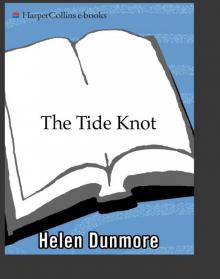 Tide Knot
Tide Knot The Betrayal
The Betrayal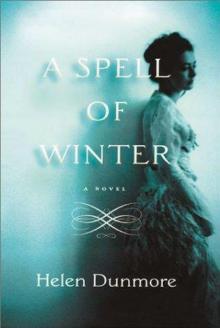 A Spell of Winter
A Spell of Winter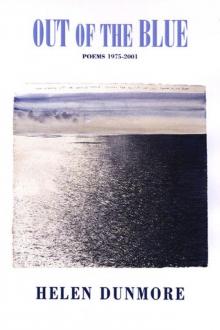 Out of the Blue
Out of the Blue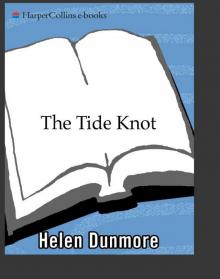 The Tide Knot
The Tide Knot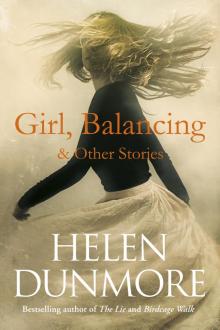 Girl, Balancing & Other Stories
Girl, Balancing & Other Stories Betrayal
Betrayal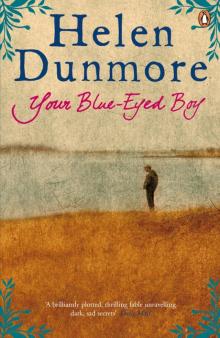 Your Blue-Eyed Boy
Your Blue-Eyed Boy